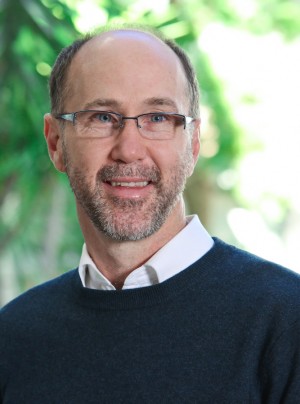
This is part of a series of articles showcasing the Sax Institute members’ diverse range of research with implications for future health policy and practice.
Centre for Healthcare Resilience and Implementation Science, Australian Institute of Health Innovation, Macquarie University

The ways in which research on patient-centred care (PCC) is being translated into practice will be the focus of a new program of research being initiated by the Centre for Healthcare Resilience and Implementation Science (CHRIS) over the next several years.
Associate Professor of Health Improvement Research David Greenfield said the core interest of the Centre (formerly the Centre for Clinical Governance Research at University of NSW) was to investigate issues of policy, governance and leadership in the health sector.
The Centre aimed to identify strengths in the healthcare system and to highlight areas where health professionals and teams were providing high-quality safe care, as well looking at the challenges and constraints that at times resulted in suboptimal care, he said.
In 2016, the Centre would begin a number of projects investigating PCC.
“We are starting from the premise that improved communication and enhanced relationships between patient and health professionals is at the heart of good healthcare,” he said.
“We are researching how the ideas, principles and concepts of PCC can and are being translated into practice in a variety of clinical and organisational settings.”
Research projects will include examining PCC associated with chronic illness in primary healthcare, researching PCC in primary healthcare for people with young onset dementia and studying PCC in end-of-life decision-making in acute care.
End-of-life care
Professor Greenfield said end-of-life care was a particularly challenging environment in which to achieve PCC, with factors such as the patients’ and their families’ religious beliefs and culture having an impact on their care needs.
The project would involve observational and interview-based research, looking at case studies to see how end-of-life care was currently being done, what worked and why, and what barriers clinicians and care providers faced to achieving patient-centric care for dying patients.
“What may work for one family, might not work for another family,” he said. “A lot of flexibility is required by clinicians in that environment.”
Young onset dementia
He said the growing issue of young onset dementia among the Australian population was another area where patient and family expectations of optimal care varied widely.
While many older patients were from a generation that believed “the doctor knows best” and were happy for their clinicians to make decisions on their behalf, their adult children often had different expectations, and wanted to be involved in decision-making about their parent’s care.
Associate Professor Greenfield said the project would aim to identify and understand positive models for PCC of patients with young onset dementia, as well as identifying shortcomings in such care.
He said two of the new projects were being funded as PhD scholarships by Macquarie University and are associated with a new program of PCC research with St Vincent’s Health Australia.
Associate Professor Greenfield explained that there were opportunities for other studies in the PCC field at Macquarie University and encouraged those with an interest to contact him.
The Sax Institute’s unique organisational structure, with 47 members from public health and health services research groups and their universities, connects us with a powerful public health network and world‑leading research expertise.
Find out more
- Find out more about the Centre for Healthcare Resilience and Implementation Science
- Contact Associate Professor David Greenfield – david.greenfield@mq.edu.au
- Read about our other Sax Institute members
